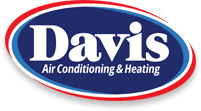How HVAC System Maintenance Affects Your Comfort Year Round
The best way to keep your heating and cooling equipment working at its best in every season is through regular HVAC system maintenance. The following brief introduction will give you an inside look at the importance of HVAC system maintenance, as well as help you understand what you can do and what your HVAC professional can do to keep your heating and cooling systems providing reliable comfort year around.
The Need for HVAC System Maintenance
Your HVAC system is a sturdy collection of equipment and components designed for years of reliable service. Like any mechanical devices, however, home heating and cooling systems will begin to show signs of wear over time. Performance will deteriorate, efficiency will drop, and reliability will become intermittent. Poorly maintained heating and cooling systems will break down more frequently and, eventually, will fail so severely that they either can’t be repaired or will cost more to repair than replace.
Benefits of HVAC System Maintenance
Regular preventive HVAC system maintenance offers multiple benefits that will improve indoor comfort, save energy and reduce the amount of money you spend each month on indoor comfort. Maintenance:
- Boosts in HVAC system efficiency – Regular maintenance keeps heating and cooling systems working at their highest levels of efficiency. Energy consumption is reduced and monthly bills are decreased. If you have a high-efficiency HVAC system in your home, regular maintenance is even more important to ensure the equipment keeps working the way you expect.
- Increases system life span – A well-maintained HVAC system will last longer and operate more reliably than one that’s neglected or maintained only intermittently. A regular program of maintenance could add years to the serviceable life of your heating and cooling equipment.
- Offers better reliability – HVAC equipment that’s kept in good shape through regular maintenance will be less likely to break down, especially when the higher stresses of a heating or cooling season begin. Maintenance decreases the need for costly emergency repairs or, even worse, complete system replacements in the middle of the season when equipment and labor costs are likely at their highest.
HVAC System Maintenance Tasks
Preventive maintenance should be performed at least once a year. Heating systems should be inspected and tuned up in the fall, while cooling systems should receive maintenance in the spring.
When your HVAC technician arrives for the maintenance appointment for your cooling system, for example, he will perform tasks such as the following:
- Change the air filter – Air filters remove dust, dirt, pollen, mold and other particulates from your indoor air as it circulates through the HVAC system. Dirty filters can cause system malfunctions and breakdowns. Though you should be checking the air filter monthly as changing it as it gets dirty, your technician will also check the filter as part of a maintenance visit.
- Check refrigerant levels – Cooling systems require a manufacturer-specified level of refrigerant for heat transfer and release. Your technician will make sure the system contains the proper amount of refrigerant and will add more if needed. He should also find and fix any refrigerant leaks.
- Check and calibrate controls – The system controls should be checked and calibrated to ensure correct operation. Control checks and adjustments should always include the thermostat. Your technician should also make sure all system controls work correctly and that the system cycles properly.
- Check and clean condenser and evaporator coils – The unit’s condenser and evaporator coils should be cleaned and checked for damage, leaks or other problems. The coils are an important part of heat transfer, which means their condition will affect overall performance and efficiency of the system.
- Clean and clear condensate drains – Drain systems in the cooling system should be checked for obstructions and cleared if any are present. The drain pan should be cleaned and, if appropriate, algaecide should be applied to prevent the growth of algae in the drain system.
- Check ductwork – Ductwork should be inspected to ensure it’s free of damage. All sections should fit snugly together and each connection should be sealed with mastic to prevent air leaks. Ductwork should also be insulated with rigid fiber board insulation or wrapped with standard blanket-style insulation.
Learn more about Davis Air Conditioning’s HVAC system maintenance, or contact us today at 888-929-0049 to schedule a service for your home’s heating and cooling system!
Image Provided by Shutterstock.com
You May Also Like

Should I Repair or Replace My Furnace in Houston, TX?
The mercury’s dropped, your furnace is making strange sounds, and you’re wondering whether to nurse it back to health or send it… Continue Reading Should I Repair or Replace My Furnace in Houston, TX?…

How Mechanical Ventilation Boosts Indoor Air Quality
The air inside your Sugarland, TX, home changes drastically during the holiday season. As temperatures dip and windows stay sealed tight, indoor… Continue Reading How Mechanical Ventilation Boosts Indoor Air Quality…

Why Are Heat Pumps With Greenspeed Intelligence So Efficient?
As Angleton, TX, homeowners crank up their heating systems for cooler weather, energy bills threaten to climb faster than Gulf Coast humidity… Continue Reading Why Are Heat Pumps With Greenspeed Intelligence So Efficient?…
